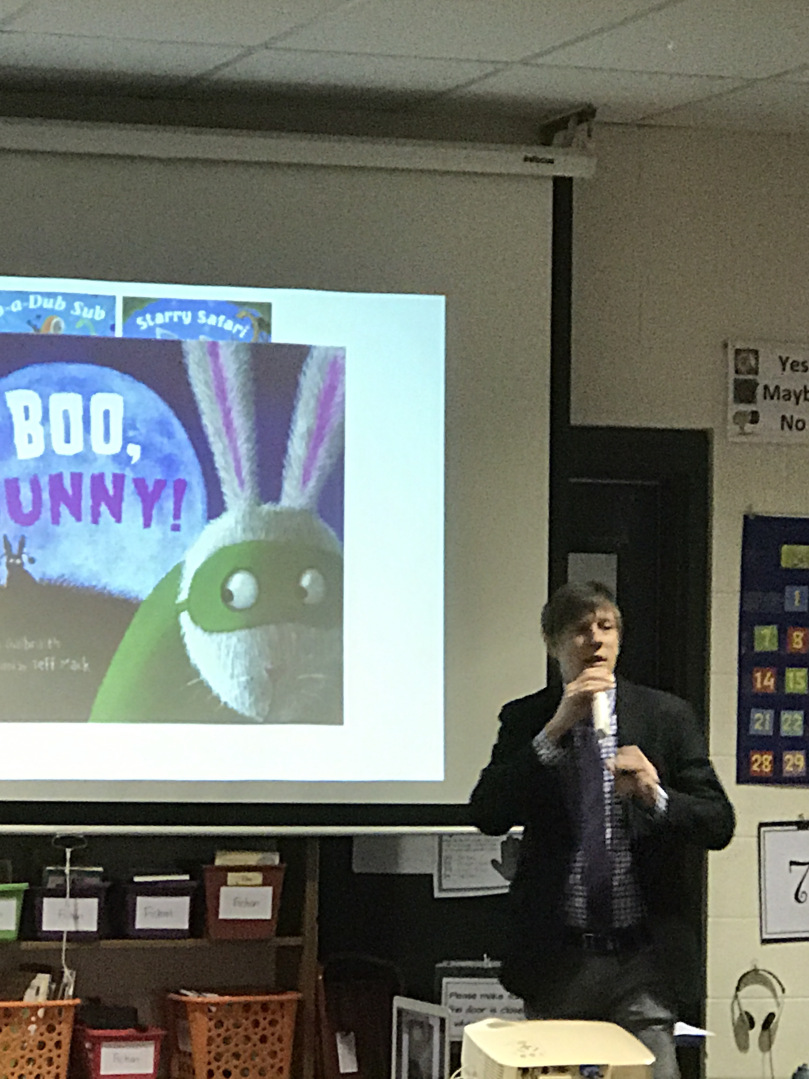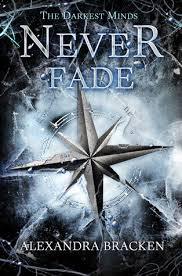This semester I am enrolled in an Adult Reading Materials course at UNT where I have to read 2 books a week across various genres and then write book reviews. The information in this and future posts come directly from my assignments.
ReviewsA Man Called Ove, Fredrik Bachman, Simon & Schuster, 2012, $16.00 paper, ISBN 978147673802
 “People say Ove saw the world in black and white.” Orphaned at age 16 and used to be alone, Ove moved along in life a principled man – right was right and wrong was wrong. And then, one day, Sonja crossed his path. Sonja “…was color. All the color he had.” Ove and Sonja, complete opposites, completed each other. But when Sonja passes, he ceases to know how to exist and decides he must join her in the afterlife. His post-Sonja days are spent planning and trying to succeed in his suicide. Much to his dismay, his millennial neighbors (and his least favorite animal – a cat he calls the Cat Annoyance) repeatedly interrupt his plans by showing he has a purpose. Bachman travels throughout Ove’s life to craft a story about living and dying, friendship and animosity, paradigm shifts, and finally, life after death. A Man Called Ove will make young adults value their elders and help older generations understand and find the value in today’s youth and just maybe help readers discover their self-worth.
“People say Ove saw the world in black and white.” Orphaned at age 16 and used to be alone, Ove moved along in life a principled man – right was right and wrong was wrong. And then, one day, Sonja crossed his path. Sonja “…was color. All the color he had.” Ove and Sonja, complete opposites, completed each other. But when Sonja passes, he ceases to know how to exist and decides he must join her in the afterlife. His post-Sonja days are spent planning and trying to succeed in his suicide. Much to his dismay, his millennial neighbors (and his least favorite animal – a cat he calls the Cat Annoyance) repeatedly interrupt his plans by showing he has a purpose. Bachman travels throughout Ove’s life to craft a story about living and dying, friendship and animosity, paradigm shifts, and finally, life after death. A Man Called Ove will make young adults value their elders and help older generations understand and find the value in today’s youth and just maybe help readers discover their self-worth.
Ordinary Grace, by William Kent Krueger, Atria, 2013, $16.00 paper, ISBN 978151645859
 Frank Drum was 13 in the summer of 1961. Looking forward to a summer of fun, Frank and his kid brother, Jake, work every Saturday on their grandfather’s yard in order to earn money for root beer and fireworks. Their summer turns tragic early on as both children experience four separate deaths. Frank and Jake are deeply entwined in the gossip, controversy, and secrets that fill their family and small-town following the deaths. They, through eavesdropping and breaking rules, are exposed to the harsh truths and realities of the grown-up world, to the complications and contradictions in which life is too rich. Ordinary Graces, a forced-coming of age tale, is filled with life lessons, consequences, loss, and graces, such as when Jake miraculously overcomes his life-long stutter in the midst of family stress. Krueger quietly and beautifully writes about the loss of childhood innocence and death paired. He offers up an eloquent novel that is part mystery, part story-telling that will leave young adult and adult readers pondering the losses they have faced, how they were changed because of it, and the means of moving on. As Krueger closes Ordinary Grace, he writes, “The dead are never far from us. They’re in our hearts and in our minds and in the end, all that separates us from them is a single breath, one final puff of air.” This final passage illustrates that death does not mean the loss of memories and that through grace, we are still alive.
Frank Drum was 13 in the summer of 1961. Looking forward to a summer of fun, Frank and his kid brother, Jake, work every Saturday on their grandfather’s yard in order to earn money for root beer and fireworks. Their summer turns tragic early on as both children experience four separate deaths. Frank and Jake are deeply entwined in the gossip, controversy, and secrets that fill their family and small-town following the deaths. They, through eavesdropping and breaking rules, are exposed to the harsh truths and realities of the grown-up world, to the complications and contradictions in which life is too rich. Ordinary Graces, a forced-coming of age tale, is filled with life lessons, consequences, loss, and graces, such as when Jake miraculously overcomes his life-long stutter in the midst of family stress. Krueger quietly and beautifully writes about the loss of childhood innocence and death paired. He offers up an eloquent novel that is part mystery, part story-telling that will leave young adult and adult readers pondering the losses they have faced, how they were changed because of it, and the means of moving on. As Krueger closes Ordinary Grace, he writes, “The dead are never far from us. They’re in our hearts and in our minds and in the end, all that separates us from them is a single breath, one final puff of air.” This final passage illustrates that death does not mean the loss of memories and that through grace, we are still alive.
Until recently, I didn’t understand what was meant by the term literary fiction. I was aware of the different genres and just simply classified the intensively detailed novels as intellectual fiction. The blog posts I stumbled across this week serve as a means of better understanding literary fiction and how the two novels I read fit into this categorization.
In a HuffPost blog, Steven Petite, writes, “Literary Fiction separates itself from Genre because it is not about escaping from reality, instead, it provides a means to better understand the world and delivers real emotional responses” (Petite, 2014). This statement perfectly describes how I felt reading Ordinary Grace and A Man Called Ove. I felt as if the characters in both works could very well exist currently – nothing seemed unbelievable – and both novels attempted to make sense of real world problems and feelings, particularly death and interpersonal relationships. In a separate HuffPost blog, an astute distinction is made about literary fiction: an emphasis is placed on complex issues while placing an emphasis on the writing, not the plot (Triska, 2013). Including the previous characteristics of literary fiction, Nathan Bransford takes the definition further. He points out that literary fiction focuses on character development and writing style. He also puts on the hat of myth-buster and argues that in good literary fiction, a plot is present and typically within the character, rather than the character taking part in the plot (Bransford, 2007). For me, that is Ove’s change over time as he is forced to interact with his outside world or, in Ordinary Grace, it’s Frank’s coming of age as he becomes privy to the real world and its harsh realities.
The Los Angeles Review of Books (LARB) provides reviews of literary fiction. LARB was particularly helpful in that as I read several of the book reviews, I was able to pick out the characteristics that make up Literary Fiction. For example, Jenny Hendrix’s review of Milan Kundera’s The Festival Insignificance immediately makes me think of A Man Called Ove when she writes, “ …the novel is peopled by lightly-traced, ordinary men leading insignificant lives concerned with largely minor things.” Just from this line, it sounds as though she is talking about Ove, however, this line, to me, evokes that the book is concerned with characters rather than action and adventure, as one could easily find in genre fiction. Hendrix later discusses another element of literary fiction – stylistic liberties. The novel she is reviewing jumps between time by the notion of the characters reminiscing. Both Ordinary Grace and A Man Called Ove play with the prose and time, as in the former the main character is recalling the events from 40 years earlier and in the latter, the book jumps back and forth in Ove’s life.
Literary fiction is not a one-size fits all genre (or is it even a genre at all). There are some similarities across works of literary fiction – such as the emphasis on characters and the very real problems they face as well as stylistic liberties the authors take – but book reviews, articles, lists, and podcasts help readers determine what kind of character or what types of problems that would like to read about. They also provide examples of other literary fiction. For example, The Booklist Reader provides the longlist for the 2017 Man Booker Prize, an award that is usually given to works of literary fiction. Some of the titles this year include Lincoln in the Bardo by George Saunders. Lincoln in the Bardodips into genre fiction, as it is historical, but what makes it literary fiction is that the novel utilizes a writing style similar to plays and incorporate real quotes. Additionally, it focuses on the heavy grief that comes with the loss of a child (Seaman, n.d.).
Another recommendation comes directly from Penguin Random House’s Literary Fiction Book List. Haruki Murakami, no stranger to difficult language, utilizes short stories to weave together the stories of lonely men (Penguin Random House, 2017).
References:
Bransford, N. (2007). What makes literary fiction literary? Retrieved from https://blog.nathanbransford.com/2007/02/what-makes-literary-fiction-literary.html
Hendrix, J. (2015). Dancing in the air. Los Angeles Review of Books. Retrieved from https://lareviewofbooks.org/article/dancing-in-the-air
Penguin Random House. (2017). Men with Women. Retrieved from http://www.penguinrandomhouse.com/books/547925/men-without-women-by-haruki-murakami/
Petite, S. (2014). Literary fiction vs. Genre fiction. HuffPost. Retrieved from http://www.huffingtonpost.com/steven-petite/literary-fiction-vs-genre-fiction_b_4859609.html
Ruzicka, M. (2017). 2017 Man Booker Prize Longlist Announced. Booklist Reader. Retrieved from http://www.booklistreader.com/2017/07/27/book-news/2017-man-booker-prize-longlist-announced/
Seaman, D. (n.d.). [Review of Lincoln in the Bardo]. Booklist Review. Retrieved from https://www.booklistonline.com/Lincoln-in-the-Bardo-Saunders-George/pid=8433908
Triska, Z. (2013). Literary and mainstream novels: What’s the difference? HuffPost. Retrieved from http://www.huffingtonpost.com/2013/08/21/literary-novels-_n_3790198.html
Advertisements Share this:




